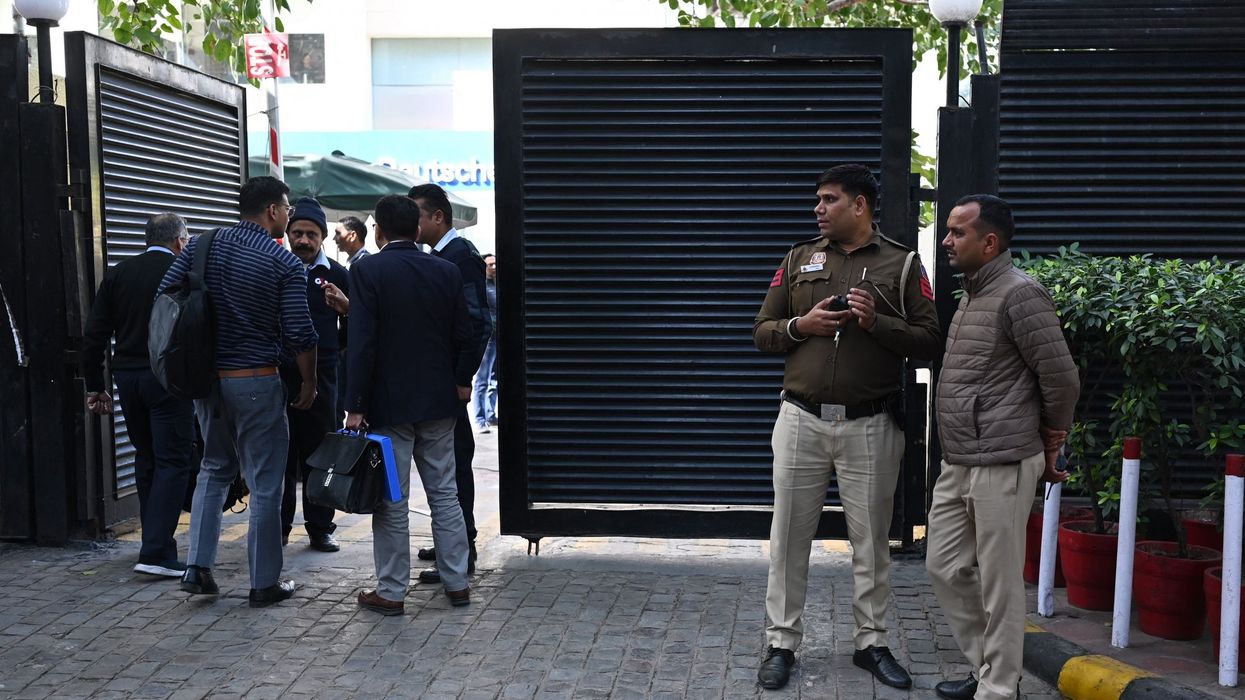Global media watchdogs and human rights bodies on Tuesday criticised the Indian government's income tax survey operations at the BBC's offices in New Delhi and Mumbai, saying the action "smacks of intimidation" and was a "blatant affront" to freedom of expression.
The Income Tax officials described the action as part of an investigation into alleged tax evasion.
Reacting to the Indian IT department's action, the UK-based British public broadcaster said that it was "fully cooperating" with the authorities and hoped that the situation will be resolved "as soon as possible".
The New York-based independent non-profit Committee to Protect Journalists (CPJ) urged the Indian government to stop harassing journalists.
Its Asia programme coordinator Beh Lih Yi said: "Raiding the BBC’s India offices in the wake of a documentary criticising Prime Minister Narendra Modi smacks of intimidation".
“Indian authorities have used tax investigations as a pretext to target critical news outlets before, and must cease harassing BBC employees immediately, in line with the values of freedom that should be espoused in the world’s largest democracy,” CPJ said in a statement.
"The searches by the tax authorities of the offices of @BBCWorld in #Inde , 3 weeks after the censorship of his documentary on @narendramodi, constitute an outrageous reprisal. RSF denounces these attempts to silence any criticism of the Indian government," Paris-based Reporters Without Borders (RSF) tweeted.
Amnesty International tweeted: "These raids are a blatant affront to freedom of expression." "The Indian authorities are clearly trying to harass and intimidate the BBC over its critical coverage of the ruling Bharatiya Janata Party. The overbroad powers of the Income Tax Department are repeatedly being weaponised to silence dissent. Last year, tax officials also raided the offices of a number of NGOs, including Oxfam India. These intimidatory acts, which undermine the right to freedom of expression in India, must end now,” it said in a statement.
The South Asia Solidarity Group, a human rights organisation based in the UK, dubbed it a “blatantly vindictive move”.
“In the wake of the government's ban on sharing extracts or screening the documentary, this raid makes it clear that the Modi government will attack all those who criticise Narendra Modi, the BJP and those close to them,” said Mukti Shah, spokesperson for the group.
In New Delhi, officials said the survey was being carried out to investigate issues related to international taxation and transfer pricing of BBC subsidiary companies, and alleged that the BBC had been served with notices in the past but was "defiant and non-compliant" and had significantly diverted its profits.
The IT action against the BBC comes weeks after the broadcaster aired a controversial two-part documentary -"India: The Modi Question"- on Prime Minister Narendra Modi and the 2002 Gujarat riots.
The Indian government has branded the two-part series a “propaganda piece”, designed to push a particular “discredited narrative”.
“The bias, lack of objectivity, and continuing colonial mindset is blatantly visible,” the Ministry of External Affairs (MEA) said at the time it was aired in the UK last month.
(PTI)




